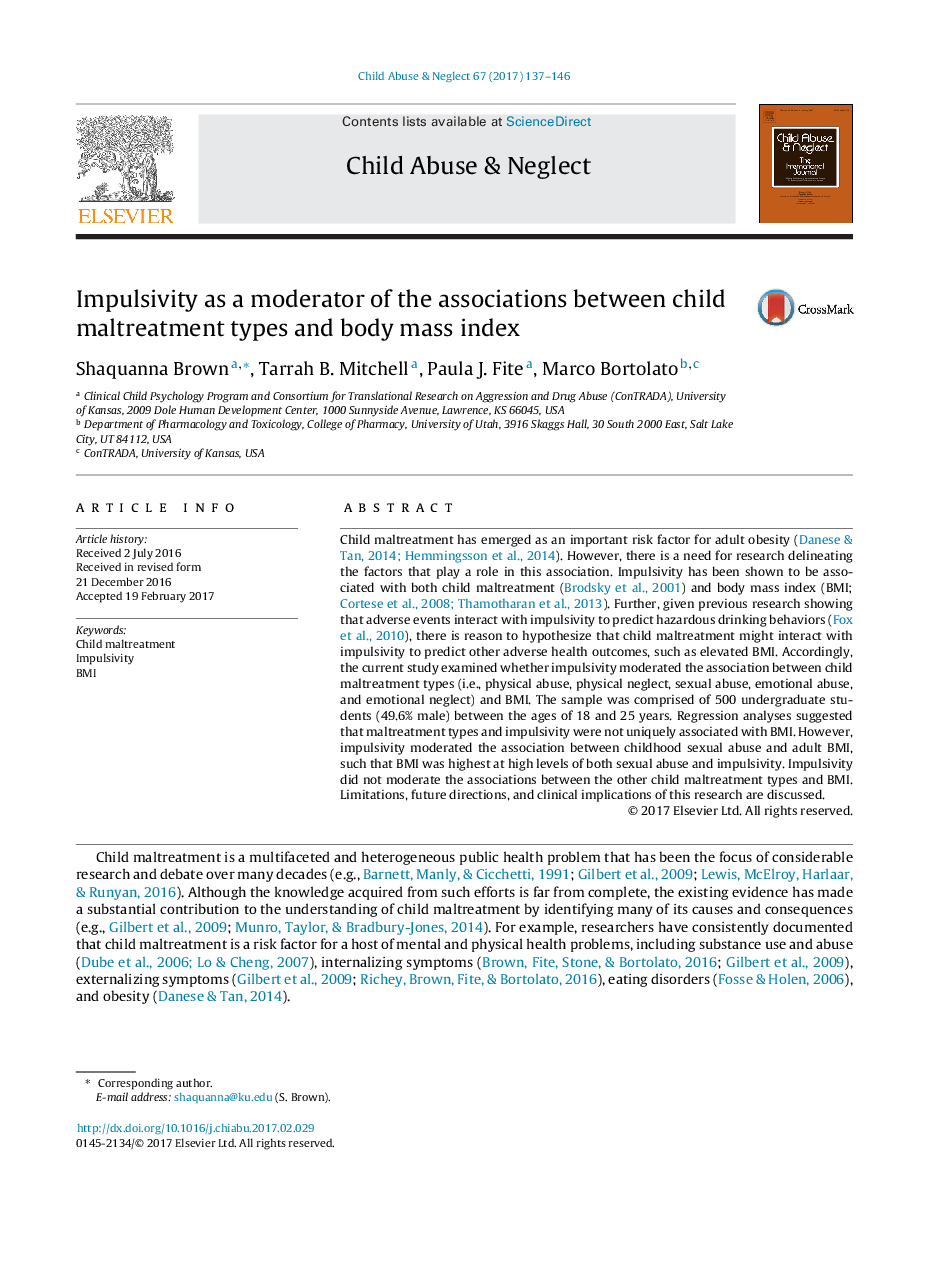| Article ID | Journal | Published Year | Pages | File Type |
|---|---|---|---|---|
| 4936041 | Child Abuse & Neglect | 2017 | 10 Pages |
Abstract
Child maltreatment has emerged as an important risk factor for adult obesity (Danese and Tan, 2014, Hemmingsson et al., 2014). However, there is a need for research delineating the factors that play a role in this association. Impulsivity has been shown to be associated with both child maltreatment (Brodsky et al., 2001) and body mass index (BMI; Cortese et al., 2008, Thamotharan et al., 2013). Further, given previous research showing that adverse events interact with impulsivity to predict hazardous drinking behaviors (Fox et al., 2010), there is reason to hypothesize that child maltreatment might interact with impulsivity to predict other adverse health outcomes, such as elevated BMI. Accordingly, the current study examined whether impulsivity moderated the association between child maltreatment types (i.e., physical abuse, physical neglect, sexual abuse, emotional abuse, and emotional neglect) and BMI. The sample was comprised of 500 undergraduate students (49.6% male) between the ages of 18 and 25 years. Regression analyses suggested that maltreatment types and impulsivity were not uniquely associated with BMI. However, impulsivity moderated the association between childhood sexual abuse and adult BMI, such that BMI was highest at high levels of both sexual abuse and impulsivity. Impulsivity did not moderate the associations between the other child maltreatment types and BMI. Limitations, future directions, and clinical implications of this research are discussed.
Keywords
Related Topics
Health Sciences
Medicine and Dentistry
Perinatology, Pediatrics and Child Health
Authors
Shaquanna Brown, Tarrah B. Mitchell, Paula J. Fite, Marco Bortolato,
